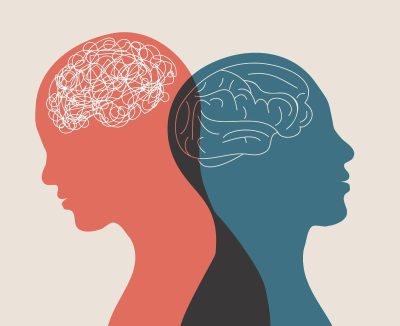Never-ending Wars, Famine and Injustice: This Society Is Making People Ill. Mental Causes of Physical Illness

All Global Research articles can be read in 51 languages by activating the Translate Website button below the author’s name.
To receive Global Research’s Daily Newsletter (selected articles), click here.
Click the share button above to email/forward this article to your friends and colleagues. Follow us on Instagram and Twitter and subscribe to our Telegram Channel. Feel free to repost and share widely Global Research articles.
***
Introduction
The terrible, never-ending wars, the threat to humanity from a possible third and nuclear world war as well as famine and injustice are making people ill.
A year ago, a scientific and medical association stated that in Germany alone, almost 30 per cent of the adult population is affected by mental illness.
Many decades ago, the World Health Organisation of the United Nations (WHO) published statistics on neuroses among the peoples of Europe and the United States, which showed that ten percent of people in Western Europe and America suffer from acute neuroses (mental illnesses). A further 30 per cent of the population are more or less neurotic. Today, there will be many more. Neurosis has psychological causes, but often triggers organic, physical complaints.
While the findings of psychosomatic science have long been taught and utilised in the USA, the insights of depth psychology have received little or no attention in Europe. The result is a backlog in research and practice.
“If you want to heal the body, you must first heal the soul!”
The Greek philosopher Plato (428-347 BC), a student of Socrates and one of the most famous and influential personalities in the history of ideas, to whom the quoted statement is attributed, seems to have already known what was only really recognised at the beginning of the last century under the influence of depth psychology research: that being ill is not only a physical but also a mental process.
Basic Data on Mental Illnesses in Germany
In January 2023, a publication by the German Society for Psychiatry, Psychotherapy, Psychosomatics and Neurology (DGPPN), a specialist scientific and medical society, stated that
“In Germany, around 27.9 per cent of the adult population is affected by a mental illness every year. This corresponds to around 17.8 million people affected (…). The most common illnesses include anxiety disorders (15.4 per cent), followed by affective disorders (9.8 per cent / unipolar depression alone 8.2 per cent) and disorders caused by alcohol and drug use (5.7 per cent).” (1)
Unfortunately, many colleagues try to reconcile insecure counsellors with social conditions instead of including social and cultural problems in the psychotherapeutic process. They would then realise that their individual problems and their illness are not only rooted in their personal history, but rather in an inhumane society and culture.
Depth Psychological Findings on the Psychological Causes of Physical Illness
With psychosomatics, medicine has taken a decisive step in its development. Whereas previously it was mainly interested in the sick organ, not the sick person, the depth psychological findings have focussed on the far-reaching psychological causes of physical illness.
Many patients who consult doctors are not organically ill, but are suffering from psychological complaints. Furthermore, psychosomatic research has been able to prove that physical illnesses are prepared in the mental sphere: Mental misalignments change organ function and thus create the readiness for illness, on the basis of which the pathogens that cause illness can then thrive.
*
Note to readers: Please click the share button above. Follow us on Instagram and Twitter and subscribe to our Telegram Channel. Feel free to repost and share widely Global Research articles.
Dr Rudolf Lothar Hänsel is a school rector, educationalist and qualified psychologist. After his university studies, he became an academic teacher in adult education. As a pensioner, he worked as a psychotherapist in his own practice. In his books and specialist articles, he calls for a conscious ethical and moral education of values as well as an education for public spirit and peace. He is a regular contributor to Global Research.
Note
(1) https://de.rt.com/meinung/164099-studie-rund-ein-drittel-der-erwachsenen-deutschen-psychisch-erkrankt/
Featured image is from melitas/Shutterstock.com

